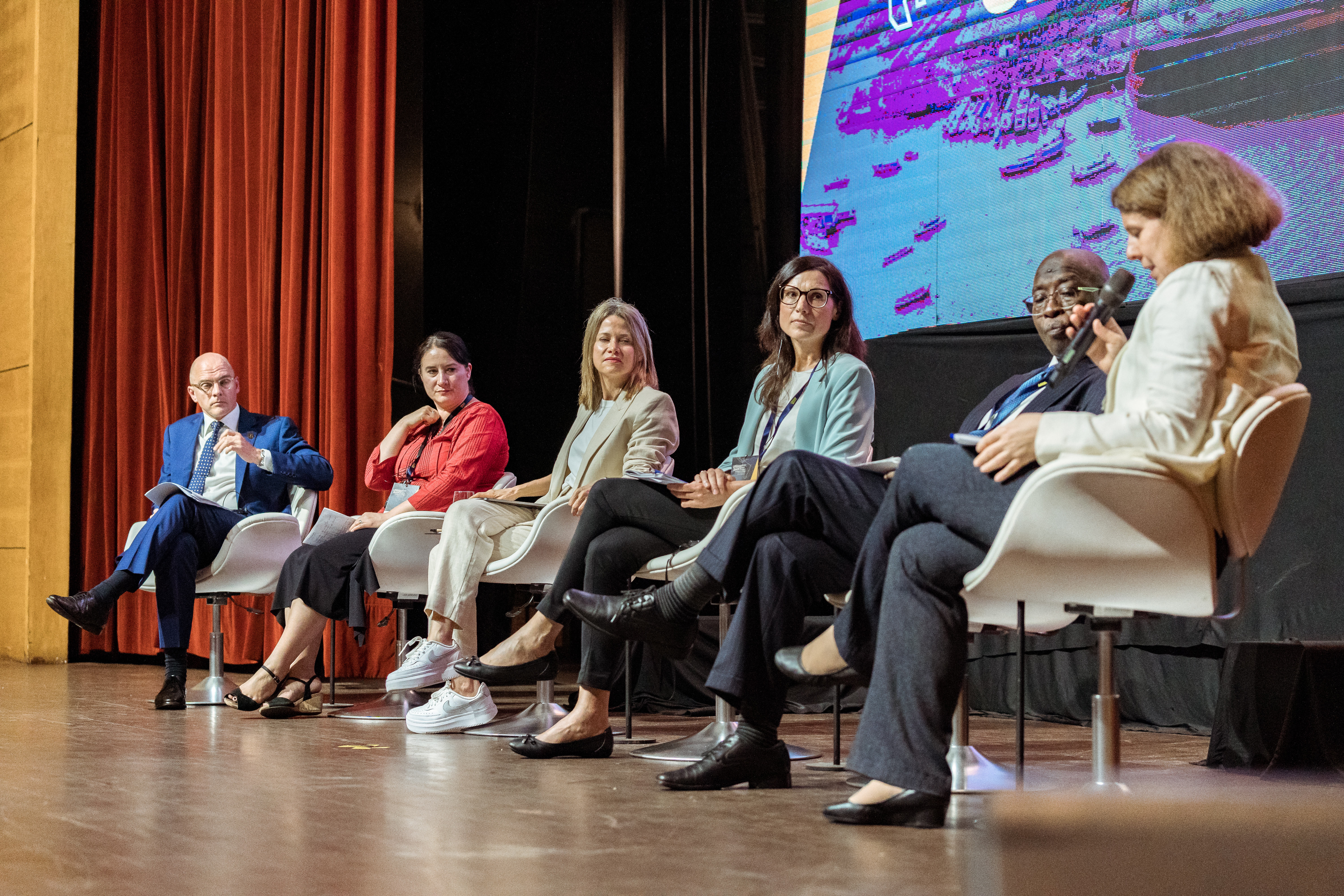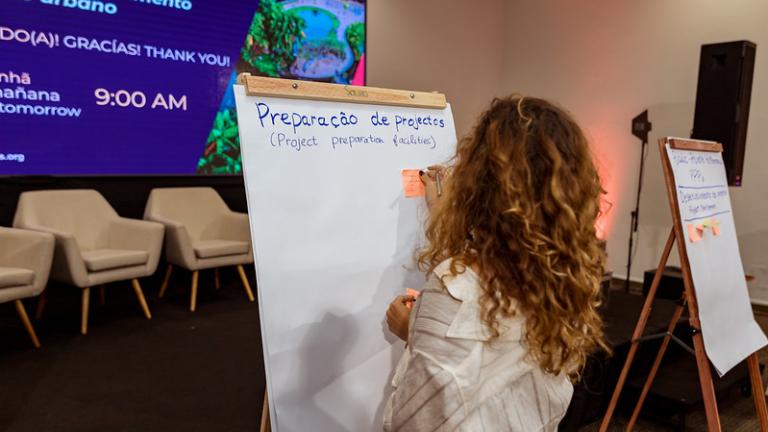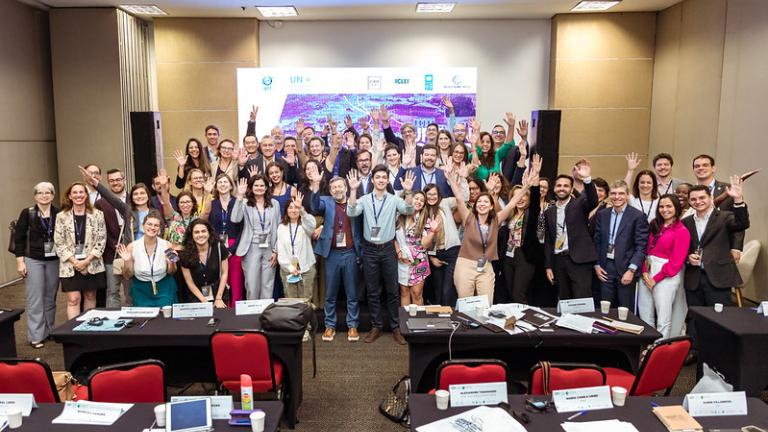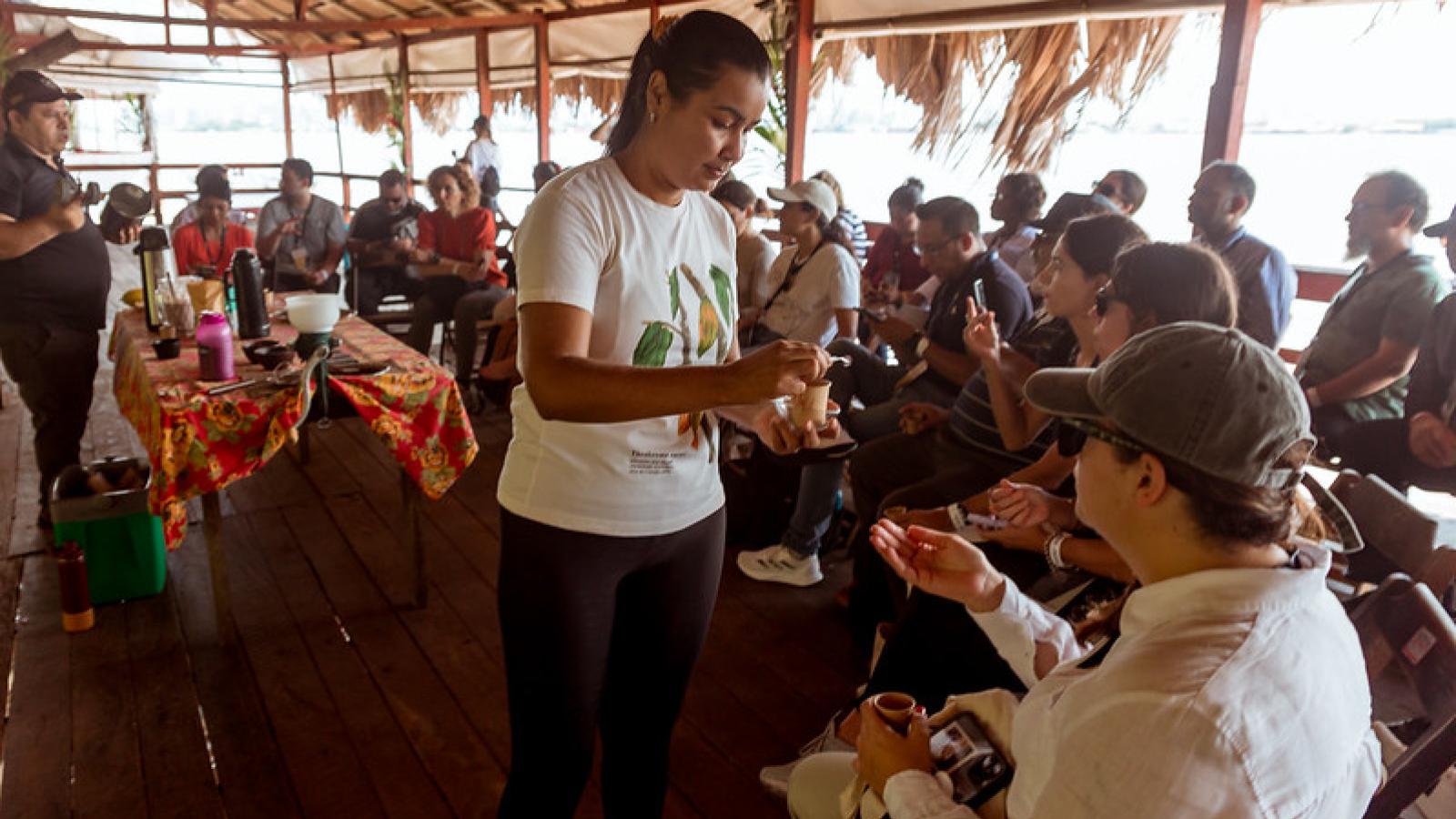ADVANCING GENDER EQUITY THROUGH ACCELERATING CLIMATE FINANCE
The climate crisis is not gender neutral—and the most effective solutions should center the needs and leadership of women and marginalized people.
Filha Do Combu, a women-led chocolate business in Belém, Brazil (Thiago Solyno Fotografia)
The evidence is clear: the climate crisis is not gender neutral. Climate change is a threat multiplier. As instability intensifies, women are increasingly subject to conflict and its externalities, including gender-based violence and persecution. And because women are disproportionately represented in informal and agricultural sectors, they are among the most vulnerable to resource fluctuations and extreme weather events. Longstanding and deeply rooted economic, social and cultural inequities mean that women are underrepresented in government bodies, financial institutions and key sectors, and consequently have less of a voice in shaping the policies that could mitigate these challenges.
Amid the climate crisis, those closest to the challenges are also those that hold the most effective solutions. Yet women are often locked out of the climate finance systems that could catalyze the transformative changes that our cites and societies need to become more resilient. The vast majority of climate finance deals do not apply a gender lens to their structure, and women-led mitigation and adaptation projects struggle to access the capital needed to scale and generate broad impact. The underrepresentation of women in leadership and key urban sectors deprives cities of a dual opportunity to overcome gender inequity and improve climate resilience. In cities, women are most tuned in to the needs of their communities, and consequently effective at organizing around solutions for resilience. Numerous studies demonstrate that when women are included in leadership roles, their collaborative and participatory approach to decision-making results in more effective, equitable and sustainable outcomes. Women are also more sensitive and responsive to the need for climate action, and more adept at integrating climate goals into decision-making.
With cities receiving only 1% of the climate finance they need to address mitigation and adaptation needs, there’s an urgent need to expand the monetary resources made available to urban areas. As governments and financial institutions work to resolve this funding gap, it’s imperative that they apply a strong gender lens through this effort. This requires a multi-faceted approach. Both governments and financial institutions must make a concerted effort to elevate the leadership and perspectives of women. Representation from women and marginalized populations in decision-making can help ensure that policies and financial mechanisms center and reflect a diverse array of needs. In cities, this could lead to the development of programs that explicitly and effectively address challenges facing the most vulnerable and at risk—and ultimately strengthen overall resilience. Alongside expanding gender equity considerations and women’s leadership within our systems, financing mechanisms must evolve to meet women-led initiatives where they are, and ensure they can take root and grow. Although financial institutions and governments are beginning to consider gender in their climate financing decisions, it remains challenging for women to access financial resources, credit, and investment opportunities—especially those in the Global South countries. By targeting grants, loans, and investment opportunities specifically toward the needs of women-led climate initiatives, institutions and governments can amplify their impact and invite future innovation. Nimble and dynamic financing options are essential to meet a diverse range of concepts.

In Marrakech, for example, women’s leadership is changing the transportation landscape in the city. Pikala, a woman-founded company, is elevating the bicycle as a carbon-neutral way to experience the city, and alongside offering cycling tours of Marrakech, the company offers free cycling lessons to women to empower them and open them up to new opportunities. And in Belém, Brazil, women-led sustainable agriculture businesses are powering the city’s burgeoning bioeconomy.
As financial institutions and governments work toward integrating gender equity considerations into developing and funding projects, UrbanShift is elevating the critical role that women play in urban resilience and ensuring that women have access to resources, capacity building, and connections within the sector to accelerate their efforts. Our advocacy events serve as a platform for women leaders to share their perspective on urban climate finance. During the UrbanShift Latin America Forum in Belém, Brazil, we hosted a panel of experts—composed of four women and one man—to discuss the urgent need to increase the flow of climate finance to cities. And following the UNEA-6 Cities and Regions Summit, hosted by UNEP and UrbanShift, it was Mayor Joy Belmonte of Quezon City, Philippines, who delivered the powerful message to the United Nations Environment Assembly on the critical role of cities in addressing the climate crisis.
To build truly sustainable and equitable cities, women at every level—from the community to government leadership—must be listened to, resourced, and empowered. It is only when we make our systems more inclusive and representative that our solutions will be, and our cities and our planet will be all the stronger for this effort.

UNEA-7 Cities and Regions Summit
Hosted in the lead-up to UNEA-7, this Summit will unite subnational leaders to strengthen collaboration and amplify the importance of cities.

Unlocking Subnational Finance for Green Sectorial Transformation: A Focus on Buildings & Cooling
Hosted during COP30 in Belém, Brazil, these dynamic panel discussions will explore strategies for enhancing access to transformative finance, and how these resources can support local climate transitions.

Sustainable Finance Action and Advocacy: A Roadmap for Global South Cities
This C40-led webinar, held alongside 4th International Conference on Financing for Development (FfD4), aimed to equip mayors with the tools they need to advocate for expanded and accelerated access to urban climate finance.

UrbanShift Looks Back: On the Value of Expanding Access to Urban Climate Finance
C40's Jessy Appavoo, ICLEI's André Almeida da Vila, and UNEP's Sharon Gil share why and how UrbanShift has prioritized support for cities to access climate finance.

